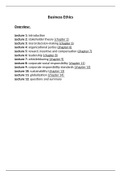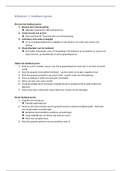Samenvatting
Summary Business Ethics
- Instelling
- Radboud Universiteit Nijmegen (RU)
All lecture notes from the course "International Business Ethics" from the bachelor of Business Administration year 1. Further information from the book might be added later.
[Meer zien]






